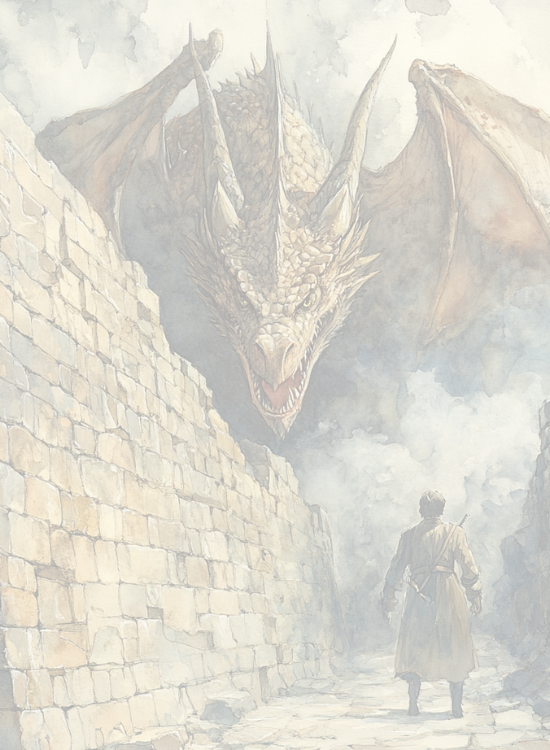Maybe your family tree is stuck because you're trying to "build" it. If you haven't had this genealogy revelation, it might just change the way you research.
This is a follow-up post, read the other post, here.
I use the term "great genealogy" but that is what you want to work towards. You can not start your research at a "great" level. You will be a beginner no matter how much related experience you have. This is good news. You aren't expected to do perfect or great work from the get-go. Part of that foundational knowledge is knowing you need to do things that will make up for any errors or issues in your past work.

And that's why "building" your family tree might be what is tripping you up.
Genealogy is more like a quest than a building project. You can't just gather all the needed supplies and build your family tree like you would a house. You will come across your "supplies" as you go and you have limited control over what you find and when you find it. Every genealogist just has to do their best with what they have.
RELATED: How Do I Know a Genealogy Source is Correct?
You may have thought you were building your family tree but you're really questing for the truth about your family history (sounds so much more exciting, right?).
In your quest, you just get started. Then you need to start learning how to quest better. You need to gather the tools (information and skills) to keep going. When you approach a brick wall, there's an analogy I love.
If you've ever seen the 1986 movie Labyrinth, directed by Jim Henson, there's a scene as Sarah begins to enter the Labyrinth where she is facing a brick wall and doesn't know what to do. You've probably been in the same situation with a genealogy problem. In the movie, it turns out to be an illusion. There are two brick walls with a path between them. Once you make an effort to look, it isn't a wall, it's an entrance. I'm not sure there's a more perfect visual analogy for a genealogy brick wall!
When you approach what you believe is a brick wall, try and look at it another way. Sometimes you find a simple solution. Sometimes it really is a difficult brick wall.
There will be times you must walk away from the brick wall. Later you'll approach it again but now you you have new skills and information. Take a different look at the brick wall.
You might have gained something like a bazooka or grappling hook that makes it easy to demolish or scale the brick wall. You might also have gotten a questing-tool that works more like a magic spell. You may need to know how to put together what you've got to bust through the wall. Alternatively, you may need to go over, under, or around the brick wall (a variation on if you can't go over the mountain on your quest, you may be able to go through it).
When you think of your genealogy as a quest and not a building project, you can think of plenty of analogies for finding alternatives when it appears you are stuck. Rarely in a quest do you run to Home Depot for the part that's missing.
Stop Building Your Family Tree and Start Genealogy Questing
When you build something, you should gather all your supplies first, if possible. You at least want a plan and break the building project up. If you think of genealogy as a building project, this doesn't work. One research session can be like a building project. You make a research plan and you gather your sources. But that is one tiny part of G E N E A L O G Y (something that is big).
Genealogy, or even busting a brick wall, is a quest. Sometimes even gathering one piece of information is a quest. A building blueprint tells us what the outcome will be if we gather the stated supplies and follow the blueprint. We never have that certainty in genealogy. Even a great research plan can't guarantee an outcome. You never know what you'll find until you look.
Here's what you need to put together to think about your research in a more helpful way than "building your family tree."
- You need to know what specific brick wall you are trying to bust.
(where is this part of the quest taking you? You don't want to wander aimlessly, know where you've going even if you know you'll face detours) - You need specific genealogy knowledge related to your specific brick wall.
(what tools do you know you'll need to get started? Fighting a water monster is not the same as a fire-breathing dragon and working on a French 19th century problem isn't the same as a 20th century U.S. problem) - You need general genealogy knowledge which progressively improves.
(I don't advise questing if you can't survive in the woods for a night or two, not everyone has those skills, just as not everyone knows what a research log, plan, notes, or report is) - What appears to be a brick wall isn't always one. Especially when returning to a "brick wall" double check your improved knowledge and skills haven't revealed it's an illusion.
(do you give up on the quest as soon as you see a brick wall or are you willing to investigate, first?)
PLUS
- You won't have all the knowledge (tools) and skills you'll need from the start. You want to build them through experience and learning.
(did you ever play Legend of Zelda? that place was covered in wise-people you had to learn from or you couldn't progress--if only genealogy was as easy; one or more wise-people everywhere you went, find a sword in a bush or under a barrel. If we could get the knowledge and resources this easily, we'd all be able to finish our family trees!) - You are meant to find what you need as you go. But you also need to know how your needs change (that's reviewing in genealogy, I don't have a good quest analogy--you review others' failures to learn not to look at Medusa or listen to the Sirens when you discover that's a part of the quest you can't skip; genealogists also learn from others' experiences but we aren't learning from death but often from success).
My recipe for questing success (without the questing analogies) is covered in my book, Essential Skills for the Occasional Genealogist. It goes in-depth on the skills that help you work towards great genealogy that allows you to research with whatever skills you have today, while progressing and improving both your skills and past research. Learn more about it, here.
So to wrap this up, you don't have what you need at the start. You'll need to look for it along the way, both through research and education. When talking about resources, genealogy is more like a video game quest where you can hold an infinite amount of supplies and weapons. Don't try and limit yourself to a reasonable amount of resources because no non-genealogist would consider the amount of information we hold on to reasonable. That means you'll need to be organized and also refresh your memory (refresh with reviewing--it's an important step in genealogy).
Genealogy is not like a real-life quest or a video game, really, it's somewhere in between. It won't be neat and tidy like a fictional story but it's not a matter of life or death. You can stop and even start over, although there's no need to start over. Just review and tidy up what you did before you knew the best way to slay the dragon was with a tickle to the belly instead of slashing with a sword.
If you've made it to the end of this post, you've got what it takes for genealogy questing. You've got to keep learning and collecting what you find, even if you're not sure you'll need it. You can't expect things to continue to work or progress the way they did at the start. Part of what keeps us coming back to genealogy is the challenge, it's a puzzle to solve, not just a story to uncover. It's a lot easier to pay someone to uncover the story for you if you don't like the challenge. You can do this!
Remember, every genealogist just has to do their best with what they have.
Try this post about the genealogy research process as well as learning about The Brick Wall Solution Roadmap.
My book, Essential Skills for the Occasional Genealogist goes in-depth on the skills that help you work towards that great process that allows you to research with whatever skills you have today, but progress and improve both your skills and past research. Learn more about it, here.









